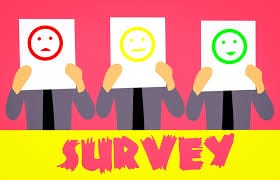 Undeterred by a lack of access to physical books and a dedicated library space in the wake of school closures due to the Covid-19 pandemic, school librarians have found a multitude of ways to contribute effectively to the knowledge ecosystem.
Undeterred by a lack of access to physical books and a dedicated library space in the wake of school closures due to the Covid-19 pandemic, school librarians have found a multitude of ways to contribute effectively to the knowledge ecosystem.
In a survey put forth by Ms Heeru Bhojwani inquiring into Librarians’ role during Virtual Learning, 78 librarians have responded with their thoughts. These are mainly individuals from International, CBSE, and ICSE schools as well as from a school run by the Maharashtra State Board along with an NGO.
Most respondents felt that their role is most useful while finding, collating, and compiling resources that would be useful for students and teachers. Here is a link to the responses.
Resource Curation:
In the words of a survey participant, “as librarians are custodians” of a co-curricular sphere, this period of virtual learning presents an opportunity to “collect and curate excellent samples” of reading material.
These are a few ways in which librarians have put down their contributions on finding and distributing relevant resources:
- Providing study materials through related websites (including modules from Coursera; online MOOCs; and NPTEL) and worksheets to help students complete their homework and research work successfully
- Finding copyright-free e-books, audiobooks, or readings of books that may be shared through email, learning platforms such as Google Classroom, or Whatsapp for students to read, listen to, or watch; keeping track of new releases by renowned authors; as well as finding news articles that may be useful for students to read
- Helping academic teams evaluate e-learning and content databases
- Provide resources to help teachers in IB schools with their unit planning
- Arrange for one-on-one meetings with DP students to help them with their Extended Essay
- Prepare an inventory of all online sites and tools used for future use
Student Engagement:
Librarians across the board have dabbled in a variety of ways to engage with students, “motivating them to be readers and lifelong learners” as one respondent has expressed. Here are a few highlights from all the librarians’ journeys:
– Pick a topic for a week to conduct book talks (including genre and author discussions) and quizzes through on-screen group discussions; host virtual book club meetings; create online storytelling sessions supplemented by presentations or through shared audio recordings of stories that librarians have produced; promote games that exercise students’ research skills; float ideas for reading projects based on UoI or Learner Profile attributes
– Draft lesson plans from the perspective of transliteracy, looking to introduce students to concepts of information, digital, and med ia literacy
ia literacy
– Provide mini-lessons on academic honesty and other aspects that can support the curriculum
– Encourage students to share their reviews of books using creative graphic organizers, and a chance to showcase the best work on a common platform
– Research destinations that are off the beaten track, as well as rare books, manuscripts, and personalities who may be little known but may have done impactful work in particular areas
– Direct interested students to help create their comic book strips if they wish to do so
– Introduce students to new books that align with their topics of study/skills/concept in focus
– Prompt students to go deeper into a story; understand character motivations, setting, and context if a class is reading the same book at the same time
– Create awareness about COVID-19
– Data collection about students’ reading.
Collaboration and Upskilling:
Librarians have also almost unanimously stated that this period of virtual learning had provided an opportunity to collaborate with teachers and support Home Room Teachers (HRTs) in their work. Help design courses together; assist teachers in implementing blended learning for classrooms, and connecting with the network of librarians across the country to update one’s practices.
This brings a neat segue into the next point that the survey results point to, of upskilling.
A lot of librarians have used the time to learn new tools such as Google Classroom and explored ways to create or engage with a virtual library platform to make collections digital to reach maximum users.
Librarians have proposed researching and using new Ed Tech tools, to subsequently train the teaching community if they are unaware of the same. In addition to attending relevant webinars and reading articles about library practices, librarians have continued to “sharpen the saw by enhancing and learning about online teaching as well as more collaborative tools,” as one respondent states.
Everybody―especially librarians―have found myriad ways to make the best use of their time during this period of virtual learning, to help communities engage in more reading, reflection, and enriched exploration.
Guest Post By Karthika Gopalakrishnan; Head of Reading; Neev Academy, Bengaluru